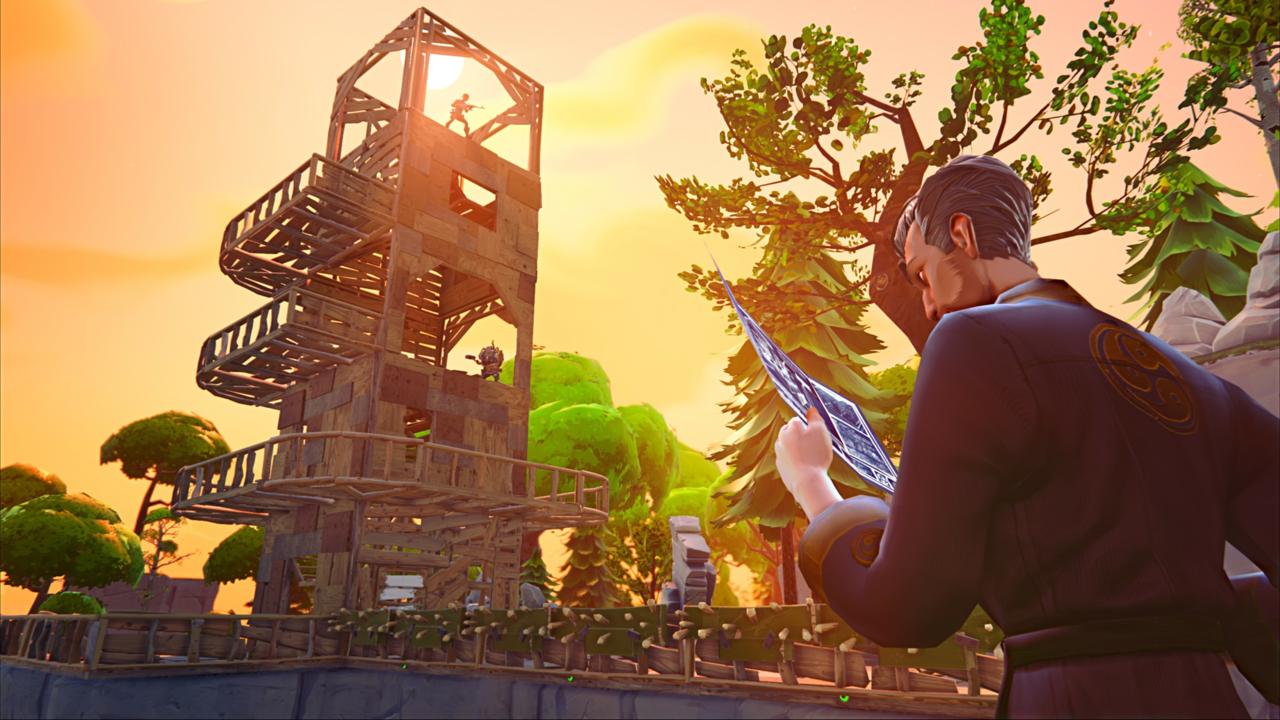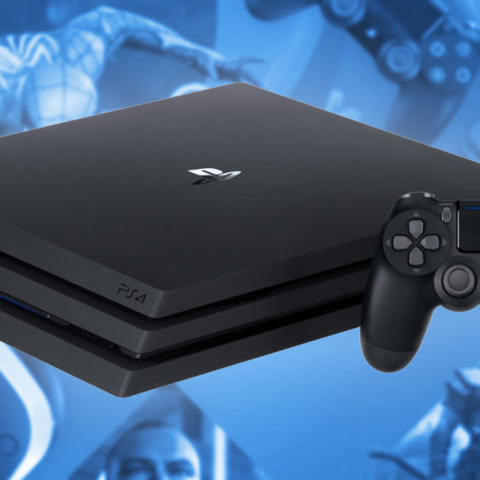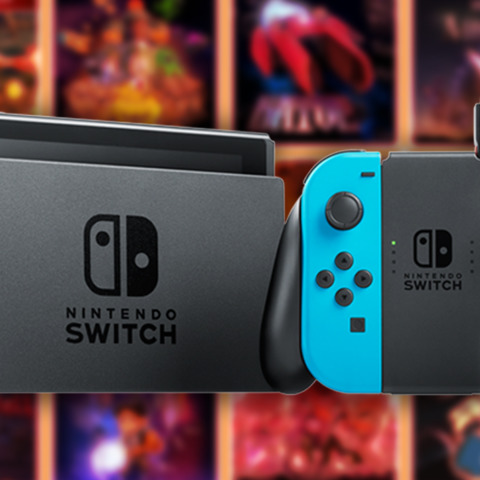So much can change in a year. This time last year, it was PUBG, dominating on Steam and sporting an exclusive deal with Microsoft for the Xbox One version, which was driving the most discussion and helping propel the battle royale phenomenon even further. Today, Fortnite is a veritable juggernaut on the level that few could have expected or even imagined. It is a bona fide hit that has been so unbelievably successful it's spurred changes to long-standing policies within the industry and impacted wider entertainment culture.
Developer Epic Games started out the year by announcing it was effectively shutting down its previous game, Paragon, and offering refunds to everyone. The studio apologised for failing the game's audience and not being able to deliver them the game they might have wanted. While this is sad for those playing the game and wanting to see it further developed, it appeared to have been a sensible business decision given Fortnite's popularity. Epic (seemingly) narrowing its focus to cut loose non-Fortnite projects speaks to the popularity of the game, the scale it has reached, and the work necessary to deliver on that vision.

Another major early 2018 development for Fortnite was when the game launched for mobile devices. Fortnite's mobile version has been a revenue juggernaut, reportedly making $2 million/day for a period of time, and a total of more than $300 million as of October--on iOS alone. Not bad for a game that is technically free. The Android edition of Fortnite, meanwhile, made headlines for how developer Epic released it. Instead of launching through Google's own store, Epic decided to release it via its own website.
Most games need the visibility of the Google Play store to find an audience, but Fortnite is an exception, and in bypassing the store, Epic avoided paying Google its store fee. One estimate said Google missed out on $50 million or more because of this. The closed nature of Apple's ecosystem relative to Google's meant that Epic was forced to launch Fortnite through the App Store. This move was the first major example in 2018 of Epic flexing its muscles and leveraging the popularity of Fortnite to blaze its own trail. What's more, the way in which in-game items and progress move between the mobile, console, and PC editions of Fortnite is relatively uncommon in the gaming world. It reflects Epic's wider ambition to break down the barriers between platforms--and that's something people seem to generally enjoy.
Another way that Fortnite impacted the gaming world in 2018 was related to policy changes among the established platform-holders. After holding out for more than two years, Sony finally allowed the PS4 to connect with outside networks for cross-play--but only with Fortnite for the time being. Fortnite being so popular that it pushed an established giant like Sony--in the midst of a hugely successful generation of hardware--to change its policies is truly a testament to how powerful Fortnite is. Epic also used its weight and clout to convince Nintendo to drop its weird requirement to use a phone for voice chat; with Fortnite, voice chat works natively. What's more, all three major consoles--Xbox One, PS4, and Switch--have Fortnite-themed hardware bundles, which is the first time that's ever happened in the world of gaming.
Companies like Microsoft, Sony, and Nintendo recognise how all-powerful Fortnite has become, and they're bending to the will of a developer in a way this industry has basically never seen before. They say a rising tide lifts all boats, and the platform-holders surely see Fortnite as a means to help their own brands fly higher.
Fortnite also further demonstrated to the industry this that narrative can have a place in multiplayer-only games. Fortnite cleverly wove some amount of narrative into the experience through numerous in-game events and stories throughout the year. Take, for example, the time the sky began to rip apart. What did it all mean? Fans searched the world for clues, eventually culminating in Epic revealing a new item, the Rift, that allows players to teleport to a new location on the map.
Sclash - Console Release Date Trailer Kingdom Come: Deliverance 2 - Official Cinematic Announcement Trailer Stellar Blade - BIBI ‘Eve’ Official Music Video Trailer | PS5 Apex Legends: Urban Assault Collection Event Trailer Total War: WARHAMMER III - Elspeth von Draken Gameplay Showcase Genshin Impact - "Arlecchino: Sleep in Peace" | Official Character Teaser Minecraft – Kung Fu Panda DLC Trailer Potionomics: Masterwork Edition - Official Announcement Trailer Snowbreak: Containment Zone - "Gradient of Souls" Version Trailer Harold Halibut GameSpot Video Review Nancy Drew: Mystery of the Seven Keys | World Premiere Official Trailer Modern Warfare III & Warzone - Official Cheech & Chong Bundle Gameplay Trailer
Please enter your date of birth to view this video
By clicking 'enter', you agree to GameSpot's
Terms of Use and Privacy Policy
Then there was impending comet--players saw it in the sky for weeks before it crashed onto the map, destroying Dusty Depot and leaving a massive crater with alternate gravity properties. There was also mysterious purple cube that one day simply appeared on the map, causing all kinds of wacky and weird things to happen. The cube, who was affectionally known as Kevin, eventually exploded, and sent players into an endless void. Epic's genius is getting people to care about the Fortnite world outside of the moment-to-moment gameplay. It might not have been the first multiplayer game to feature compelling story elements, but the loose, ongoing narrative surely helped it to keep bringing players back.
In addition to expanding to mobile, Fortnite launched for Nintendo Switch this year, bringing the battle royale game's presence to yet another major platform. Fortnite has been hugely successful on Switch. As part of an earnings report, Nintendo revealed that half of every Switch sold worldwide had Fortnite installed, which is a very impressive feat. Effectively, this seems to suggest that Fortnite may represent the kind of "killer app" that every platform needs to attract an audience. It further speaks to the power of Fortnite and the brand overall in that it can perform well no matter what platform it is on. The implication here is that, should Fortnite be able to remain popular, platform-holders like Nintendo (as well as Sony and Microsoft) may need to factor it in--in some capacity--for their future platforms.
Another way Fortnite impacted the larger gaming world this year was through its demonstration that delivering compelling new content on a regular basis can pay huge dividends. Epic releases new updates about once per week, introducing new modes, cosmetics, weapons, balance changes, and more. This helps make Fortnite feel fresh all the time--and it gives wavering players FOMO. This has surely contributed to the wider culture around Fortnite, especially among younger audiences who may feel compelled to keep coming back to see what's new. There are countless challenges to complete, skins to unlock, and modes to play, and this heavy pull to come back to the game is surely beneficial to Epic in a business sense.
Some soury news around Fortnite came in May when PUBG Corp., the developer of PlayerUnknown's Battlegrounds, filed a lawsuit in Korea against Epic. PUBG Corp. claimed copyright infringement due to the similarities between PUBG and Fortnite. However, PUBG Corp. later dropped the lawsuit, though it remains to be seen if there was a settlement and what the terms might have been. Epic was involved in a number of other lawsuits throughout 2018, some against it, and others it filed against players for cheating and other reasons. Given the size and stature of Fortnite, it's no surprise that Fortnite has found itself embroiled in legal matters, but as of yet, the litigation does not seem to have had much of a public-facing impact on the game.
In better news for Fortnite, the game's success and prominence entered another stratosphere in April when Fortnite announced a gigantic partnership with Disney and Marvel for an Avengers: Infinity War promo that saw Thanos come to the battle royale game. As further evidence of Fortnite permeating wider pop culture, Fortnite also partnered with Epic to bring jersey skins for all 32 NFL teams to the game for a limited time. More recently, players discovered Ralph from the Wreck-It Ralph film series in the game as part of what appeared to be a stealth-marketing campaign for the new film, Ralph Breaks the Internet.
These examples clearly demonstrate that major global brands recognise the value and power of being even tangentially associated with Fortnite--even if it's just a marketing tool. In that way, Fortnite has became a platform of sorts through which massive, established brands want to be involved with. What Epic will need to be mindful of is ensuring the partnerships make sense and don't come across as overly cash-grabby (though indeed Epic is surely profiting from these deals).
The mainstream attention on Fortnite also made the game a target. Fortnite caught some heat in November when Scrubs star Donald Faison called out the game for ripping off his "Poison" dance for an emote. Show creator Bill Lawrence acknowledged that someone from the Fortnite side reached out about using Faison's dance, but in the end, Faison isn't getting any royalties. Before that, rapper 2 Milly accused Epic of stealing his dance for a Fortnite emote. And before that, Chance the Rapper said he takes issue with Fortnite's use of the dances in the battle royale game. "Black creatives created and popularized these dances but never monetized them. Imagine the money people are spending on these emotes being shared with the artists that made them," he said back in July.
Fortnite's dances are based on or inspired by the performances of real artists, and it would be good to see Epic take further steps to publicly and in a front-facing way acknowledge and respect the origins of the dance moves. Fortnite is making an unthinkable amount of money from microtransactions, so it is nice to see Epic pour some of it back into the game's community. In June this year, Epic announced a massive investment for Fortnite esports competitions both big and small. Epic said it would put in a staggering $100 million into global Fortnite competitions. The gargantuan figure towers above what other games pay for their tournaments, but importantly, the $100 million covers every Fortnite competitive event in the 2017/2018 season, not just one. For example, Dota 2's The International 2018 event had a total prize pool of almost $25 million.
Epic's massive investment was a smart move for the developer, too, as it pretty much guaranteed that top-level players would continue to play to earn a slice of that money, which in turn keeps people on their couches at home watching and supporting the base game overall.
Fortnite is a free game but it makes money from the cosmetics it sells through its in-game store. When something is successful, other studios take notice. Activision's Call of Duty series added a battle royale mode of its own this year with Black Ops 4's Blackout. The mode features a progression system that seemingly borrows heavily from Fortnite's battle pass and seasonal system. EA's Battlefield V is also going to have a battle royale mode; it's called Firestorm, and it launches in March 2019. Even Rockstar Games is taking notice; the studio released battle royale mode for Red Dead Redemption 2's online mode (though GTA V launched a battle royale mode for GTA Online all the way back in August 2017, so it's not new for Rockstar). The point is that Fortnite, building off the success of PUBG before it, has impacted the larger gaming community right up to the top players. It's an incredibly impressive feat, and it further demonstrates that oftentimes some of the most innovative ideas originate at small studios before catching on in a more mainstream way.
Fortnite's insane success has also led to improvements in developer relations--at least for those who use Epic's Unreal Engine. Thanks to the extra money Fortnite has brought in, Epic was able to shift its own revenue-sharing arrangement in a move that further benefits developers, and potentially in the end, consumers as well. Epic formerly used the industry-wide 70/30 percent revenue-sharing agreement with developers who used its Unreal Engine, but after Fortnite's success, Epic changed the agreement to 88/12 with developers making more and Epic taking less. The 70/30 revenue split goes back more than a decade, and it's implemented across digital stores for not only games, but other forms of media as well. Epic shifting the split so significantly could spur further change across media, or at the least encourage more developers to use Unreal Engine (which in turn benefits Epic in the longer run). In what could be an even bigger development, Epic just recently announced a Steam competitor in the form of the Epic Store. Impressively, the store will also utilise the 88/12 revenue split, which may encourage developers to release their games on it.
But just how popular is Fortnite? In June this year, Fortnite reached 125 million players, a figure that grew to 200 million as of November, an increase of 60 percent. This represents strong growth and even more evidence that Fortnite is no fad. There is no word on how the player population breaks down between platforms, but it's easy to find matches everywhere, so you can imagine player figures are high across all systems.
Some of Fortnite's other major achievements in 2018 included the game reaching an unthinkable and unprecedented 8.3 million concurrent players, Epic picking up a further $1.25 billion in venture capital funding, and celebrities like Jimmy Fallon, Ellen, and the Saturday Night Live crew riffing on Fortnite during episodes of their shows. Meanwhile, the Boston Red Sox played the game so much this season that they had to remind themselves to eat. Some of the other notable stories around Fortnite this year include how Fortnite was cited in hundreds of divorce filings and how the mainstream media labeled the game addictive, violence-promoting, and damaging to young people. One story in particular said Fortnite was addictive in the same way that heroin is. It's sad but not surprising.
2018 was Fortnite's biggest and best year yet, but no game lasts forever. It will be intriguing to see how Epic plans to continue to shake things up and make the experience feel new and exciting in 2019 and beyond. Outside of its work on the Unreal Engine, will Epic become a one-game studio, pouring its resources into supporting and expanding Fortnite to make hay while the sun shines?
That would seemingly make sense for the time being, but I'd be surprised if the studio wasn't at least in the planning stages on other new projects. After all, while Fortnite might be riding high today, no one expects it to stay on top forever.





